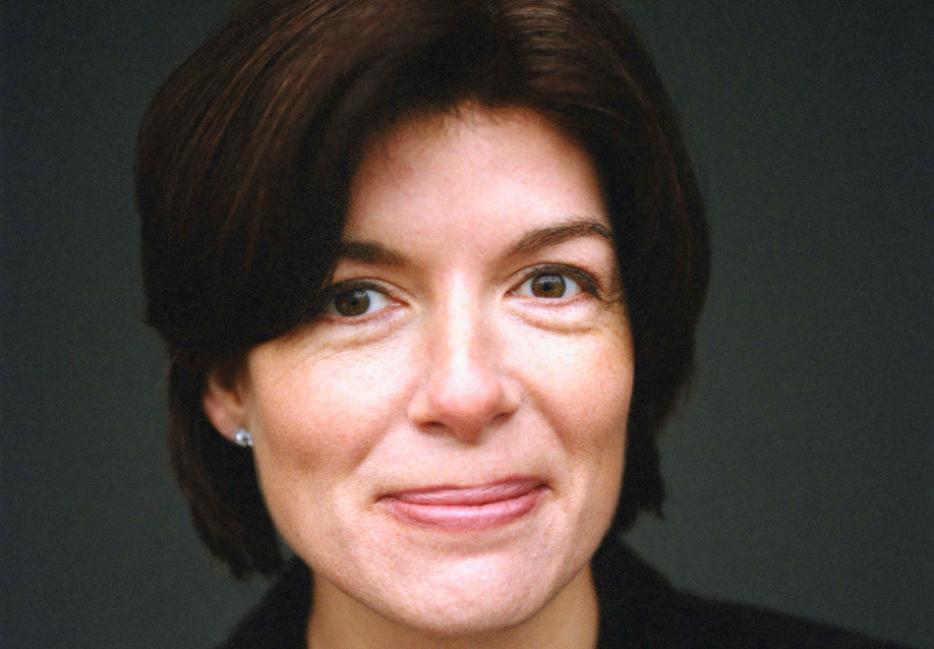“How angry am I? You don’t want to know. Nobody knows about that.”
Thus opens Claire Messud’s latest novel, The Woman Upstairs. Its narrator, Nora Eldridge, an almost-middle aged elementary school teacher in Cambridge, Massachusetts, is the type of person who mistakes announcing her feelings for owning them.
“When I was a senior in high school, we read in my English class Dostoyevsky’s Notes from Underground and it was a life-changing experience for me,” says Messud over a midwinter meeting in Toronto, on a frigid afternoon the colour of paste. “I felt amazed that this was what writing could be and that such things could be said, that people could be angry in fiction.”
And so, Nora is angry, but in the clumsy manner of a woman who’s spent her life being good.
The catalysts for Nora’s coming-of-rage are a family of Paris-based intellectuals: Skandar Shahid, a visiting Harvard professor of ethical history; Sirena, his Italian installation-artist wife; and their basically perfect young son, Reza, who is Nora’s student. Once they enter her unexceptional life, she finds a window into a more vital version of herself, through a study in geographic displacement and the perverse hierarchy of female friendship. It doesn’t end well.
*
What compelled you to narrow in on a self-described “upstairs woman,” this female narrator who sees herself primarily as a bit player in everyone else’s life?
There stems from Dostoyevsky a literary tradition that is an exclusively male tradition, that gives room for men to be outsiders, to be misfits, to be angry, to be ranting. Philip Roth, Thomas Bernhard, those are some recent ones. But there aren’t any women, because it’s not seemly for women to be angry, and it’s not seemly for women to do or think or display unattractive things. That’s part of who this character is, the sort of person who faints and then wakes up and says “Sorry, sorry I bothered everyone.” And I actually feel that there are maybe 20 percent of women who aren’t that—most women are that to a greater or lesser degree. She may be an extreme, but I think she’s real, and I think she hasn’t had much of a voice. I wanted to give her a chance to speak up.
In Nora’s case, it’s also clear how heavily the experience of watching her mother’s born-at-the-wrong-time resignation weighs on her, that inheritance of gendered trauma. She even describes her mother as a “beloved embarrassment.”
My husband [James Wood] is a journalist and critic and just wrote a piece in The New Yorker about watching his parents age, and how hard that is. One of the things he comments on is that you realize, once you’re getting older, that you’re becoming like them—you who spent so much time rebelling. You know the Oscar Wilde line, “All women become like their mothers. That is their tragedy. No man does. That's his.”
I think that it wasn’t until a little bit later in life that I realized all the ways in which all the things that I took as a given growing up and carried through into my life, that are just these handed beliefs, assumptions and ways of being in the world, come from my parents.
Such as?
In our house, we did not have a television on when people were eating. I was perhaps brought up to believe that you don’t do that, that that would be like eating in the bathtub. And then I discovered that some people eat in the bathtub, too.
My father was a completely displaced person. My mother was very rooted. But the spirit of our family was very much my father’s restless spirit, and we grew up moving around and didn’t even know that that was a particular way of seeing the world. The house that I’m living in now, where I’ve lived for four and a half years, is the longest I’ve lived in anywhere in my entire life. When I was a kid, you just packed up and moved. You didn’t ask.
Was that jarring?
Objectively, yes. I have nothing to compare it to. But it’s interesting, you talk to military brats and that’s their experience. The upside, it’s a chance to reinvent yourself. The downside is, it’s an effort.
It’s also alienating to be the outsider, especially when identities become politicized. Sirena brings that up to Nora early on in the book: “When you’re an Arab or have a Middle Eastern name, it’s never personal but it’s always there.”
This is the first thing I’ve written where the main character is, as it were, rooted. It’s the first time that the main person belongs. And yet one of my biggest lifelong preoccupations is this question of displacement or alienation, what it gives or what it takes away, what your reality is like when you always have more than one place in juxtaposition. I guess I’m interested in what any given person’s reality is and how it relates to what’s actually out there.
I was talking to a friend whose father was a Holocaust survivor from Hungary, and had been an aristocrat. He was in a concentration camp, he survived, he went back to Budapest. He escaped in 1956 at the time of the uprising and walked out of the country. He was taken in by a family for shelter on his way and he realized that for the first time in his life, he should shave himself—otherwise he would give the family the wrong impression, and they would know he was an aristocrat. All the way through the concentration camp, the whole nine yards, he found someone else to shave him. He got to America, lived on Long Island, was an assistant cataloguer at a public library and married the daughter of a plumber, and became my friend’s father. She said, “I could never figure out which was my father: the guy who I knew, or the guy in the stories that he told about the life before.” As soon as one person moves from one place to another, there is some version of that. You become a different person.
I still don’t really know who Sirena is, or who she was, or how I’m supposed to feel about her. I don’t know if I’m supposed to relate to her or to hate her or both.
All we see is Nora’s Sirena. You might meet somebody and have a totally different experience. Nora gets herself into a very particular relationship with Sirena, and she both envies Sirena and hates her even before the end. She wishes she could be like her.
It’s an interesting take on the complicated girl-crush relationship: the female friend you idolize, and you want to be them but you also hate them because you’re not them and they have it all figured out, but then they don’t and you know it and you want to reveal it.
Isn’t part of that, too, that you really want them to value you and you feel like maybe they don’t value you as much as you do? Nora really wants to believe that Sirena thinks of her as a best friend and is always afraid—and rightly—that there’s a hierarchy, and that Sirena means more to her than she means to Sirena. Talking with friends, there’s always this weird unspoken thing where you know that if you don’t pick up the call, they’ll call you again, and then there are the people who, if they call you, you say, “Oh excuse me, I have to take this.”
Nora is this very thoughtful, multi-dimensional person, yet still that second-fiddle.
There’s a time-honoured literary tradition of the dichotomy between thinker and doer, observer and actor. That is a sort of construction of life. There are those people who are in the moment, who aren’t ill at ease, people who are just good in their skin. There aren’t a lot of them, but there are. And then there are the people who always watching. I can see in my 11-year-old daughter, she walks into a room and it’s like she has antennae and she’s figuring out what the dynamics are and where she fits in and what she needs to do to make it all okay. And it is a female thing. It’s certainly how we are brought up.
There’s a British term, “trainspotter,” for these geeky guys who go out with a list of all the trains on the rails in Britain and stand by the tracks and check off the trains as they go by like a bird watcher. Their aim is to see every train. You cannot imagine any girl doing that, ever. There’s a certain single-mindedness that’s encouraged in boys that’s not encouraged in girls. Those boys are nerdy, but they’re not freaks. It’s a different sense of what’s appropriate.
Sirena, in that context, is male. Her placemarker is actually a male placemarker. It may be partly because she comes from a different country, but it’s also what it means to be an artist: to say, “I’m not going to tend to the needs and responses of others.” And that’s something Nora’s desperate to be able to do, to have that freedom, and doesn’t know how. She doesn’t know how to be free.






